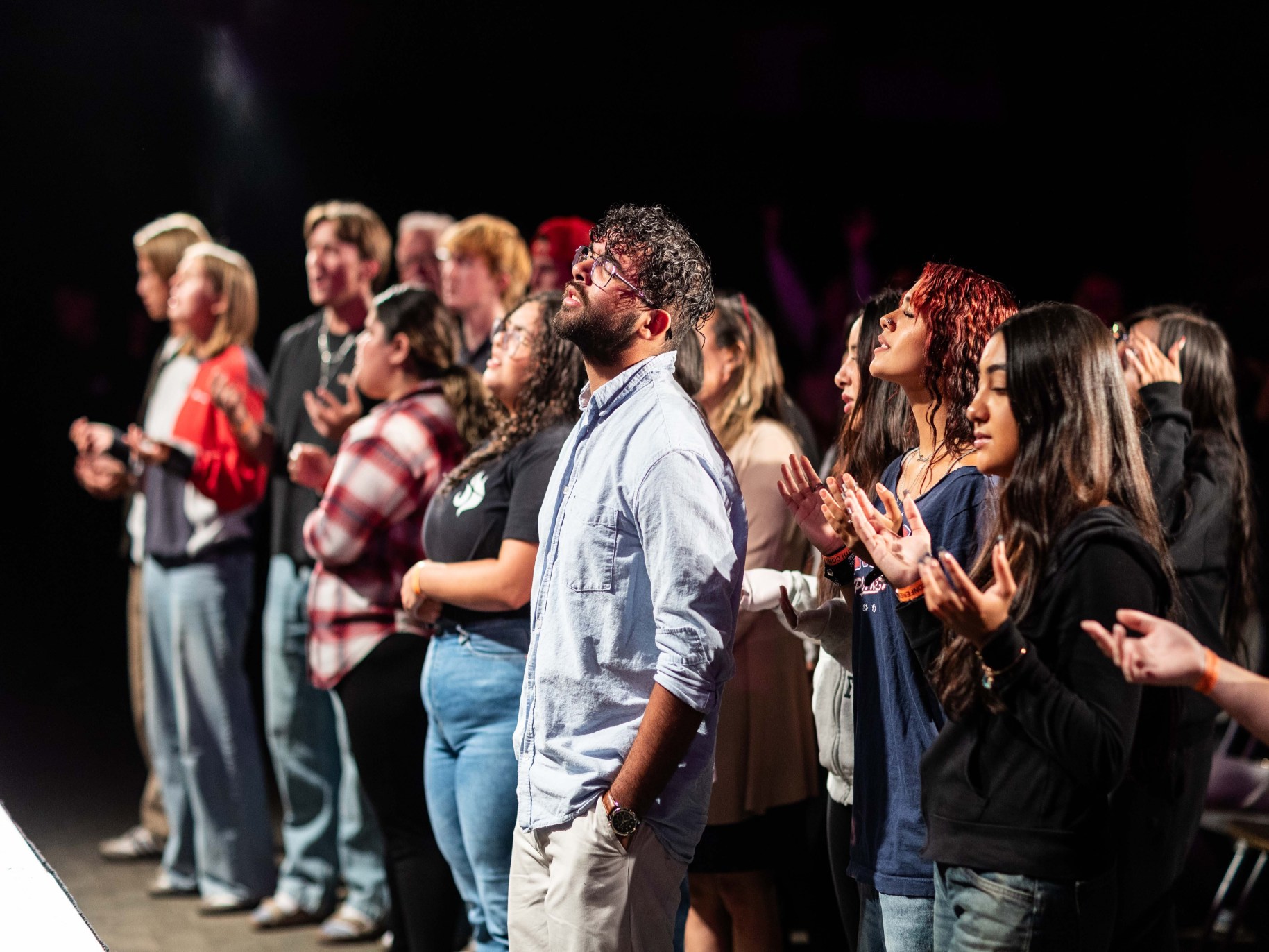- Home
- >
- APU Articles
- >
- News Article
Newly Launched Institute for Faith, Leadership, and Service Cultivates Christian Leaders Through Service and Reflection
October 06, 2025 | Written By Jacqueline Guerrero

Azusa Pacific University is excited to launch the Institute for Faith, Leadership, and Service (IFLS), which has begun working on various projects and initiatives to empower the APU community and encourage the next generation of Christian leaders. The Institute is funded by more than $9 million in grants including a $5 million grant from the Lilly Endowment through APU’s Cornerstones Project which focuses on the development of leaders through service. The funds support faculty and staff development, student leadership programming, research partnerships, and subgrants for Christian schools, churches, and parachurch organizations.
The IFLS is an academic and faith-based center designed to prepare students, faculty, and ministry partners to live out their faith through Chrisitan education, theological reflection, leadership development, community engagement, and service. “We’re building upon the work of the Center for Vocational Ministry (CVM), and IFLS is the next developmental stage that advances and builds upon CVM’s legacy,” said William Whitney, PhD, executive director of the Institute. The Institute reflects APU’s identity as a Christ-centered university by combining spiritual formation, leadership, and service to cultivate the next generation of Christian leaders. “APU has always been an innovative leader in how we can extend our Christ-centered mission and neighborly love to our local and global community,” Whitney said. “The Institute will join that mission by looking at ways we can partner with Christian leaders and organizations to promote their flourishing.”
The Institute is also connected to the Nehemiah Initiative, APU’s Strategic Plan that was introduced last fall. “APU has been investing in the success and growth of the Institute," Whitney said. “President Adam J. Morris, PhD, Provost Anita Henck, PhD, and many others have expressed such strong support and guidance as we’ve worked to bring the Institute together, and I’m positively overwhelmed by the internal support we’ve had.”
This year, the Institute’s goals begin with building their infrastructure through staffing, strategic planning, and financial systems. Through a variety of startups and initiatives on campus, the Institute will play a large role in strengthening APU’s mission to transform students for their higher calling through service and spiritual formation. Workshops and training will be held so that faculty and staff may more effectively guide students in reflection on their faith and service to their communities. The IFLS is also developing student leadership tracks including a new cohort of Faith and Service Ambassadors to be rolled out next year. The track will become a student leadership cohort designed to help students reflect on the impact of their own service initiatives from the standpoint of their Christian faith. “The Institute is here to help students connect what they’re learning to who they’re becoming and how they can serve,” Whitney said. Students will be able to engage with the Institute by applying to become a Faith and Service Ambassador, attending campus events and summits, volunteering with a church or school partner through the Faith and Service Incubator, and visiting their office.
While the Institute will be a resource for faculty, staff, and students, it is also a bridge between APU and the broader community. Their commitment to educating and equipping Christian leaders has already begun with the launch of the Faith and Service Incubator, a flagship regranting program providing funds to churches, Christian high schools, and ministries to help youth deepen their faith through Christian service-based opportunities. With support from the Institute and extending the work of the Youth Leadership Initiative (YLI), the IFLS will continue to serve hundreds of high schoolers through events, mentorship, and theological exploration. Sub-grants will also be given to programs incorporating children into the life of the church through ministry. The IFLS will focus their efforts into projects teaching ministry leaders to become better preachers and supporting the emotional wellbeing of clergy, particularly pastors of color and female leaders. On a larger scale, a national research initiative exploring the impact of service on youth spiritual formation was launched this past summer in partnership with the Barna research group.
Whitney said the Institute is already setting long term goals and planning how to share their work on a larger scale. “Over the next five years, we envision the Institute becoming a nationally recognized leader in faith integrated leadership development and service,” he said. Future plans for the Institute include publishing research that influences Christian education and ministry formation, growing a network of regranted organizations that serve thousands of youth, and establishing consistent convenings and learning communities with partners. “We want to become a hub for theologically grounded resources and training that cultivates a new generation of spiritually grounded, emotionally resilient, and service oriented Christian leaders.”
The Institute of Faith, Leadership, and Service will be at the center of many initiatives and startups on campus, locally, and nationally, but this is just the beginning. “The Institute is not just about one program or initiative,” Whitney said. “It’s a long term investment in how we form students for the Church and the world. It’s about cultivating a culture of service in our university community and with ministry leaders and organizations beyond APU.” Whitney hopes that the Institute will become a place for students, faculty, pastors, educators, and ministry leaders alike to see how their unique gifts from God can be cultivated to shape the next generation of leaders serving with wisdom, humility, and love.